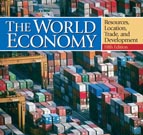Wealthy Hong Kongers cut back on luxuries as downturn takes toll
 Hong Kong - When wealthy residents of one of the world's most ostentatious cities - Hong Kong - start cutting back on luxuries, as reports suggested Friday, you know the global economy is in trouble.
Hong Kong - When wealthy residents of one of the world's most ostentatious cities - Hong Kong - start cutting back on luxuries, as reports suggested Friday, you know the global economy is in trouble.
High rollers in the high-rise city of 6.9 million which has one of the highest per capita incomes in the world are eating out less, spending less on holidays and buying fewer luxury cars.
"The coming 12 months will definitely be difficult," Leon Roy, general manager of Rolls Royce Hong Kong told the South China Morning Post.
In British colonial times, Hong Kong boasted more Rolls Royces per head of population than anywhere else in the world, but Roy admitted: "Like everyone else we're definitely affected by the weakening economy."
Sales of Porsches and other elite sports cars are also down, the newspaper reported, while top-end restaurants are seeing sales down 20 to 30 per cent compared to earlier this year.
Overall, new car sales in August were down 14.8 per cent and shoe sales down 4.1 per cent compared to August 2007 when the city's stock market was booming and house prices were still rising fast.
Travel agents in Hong Kong, meanwhile, say they expect zero year-on-year growth in 2008 as bookings slump in the second half of the year, particularly for luxury destinations around the region.
Much of Hong Kong's wealth is based upon its sky-high property prices - but real estate company Savills warned Friday the price of luxury property in Hong Kong would slump.
It predicted a fall of 25 to 30 per cent in the luxury residential property market by the end of next year and said prices in the mass residential market could drop by 15 to 20 per cent.
Even the government is downbeat about Hong Kong's chances of escaping the fallout from the global economic slump in the months ahead, warning of tougher times on the horizon.
"Looking ahead, the recent bout of global financial market tsunami will continue to generate shocks to the local asset markets, impacting on consumer sentiments and the local economy," a government spokesman said. (dpa)